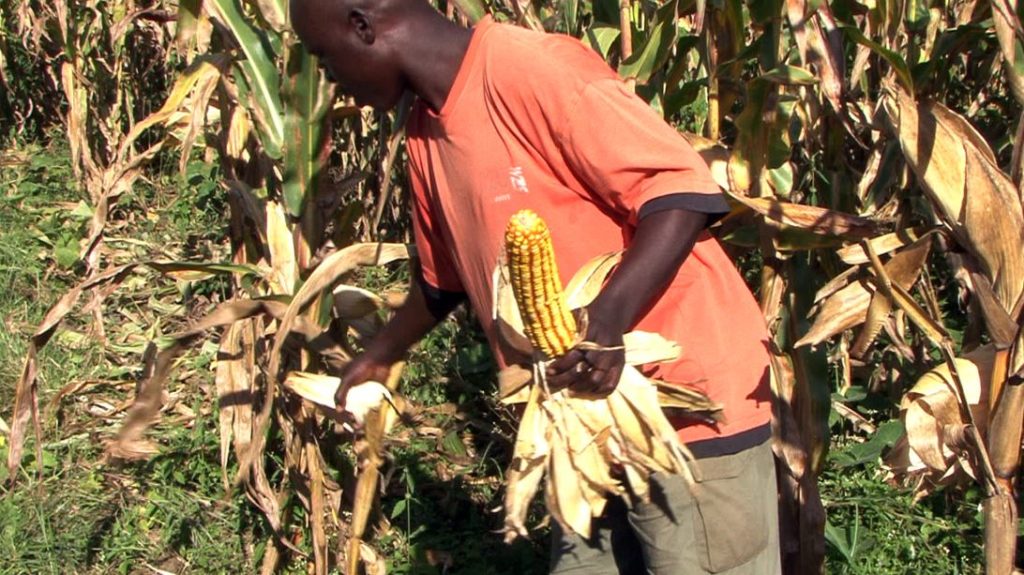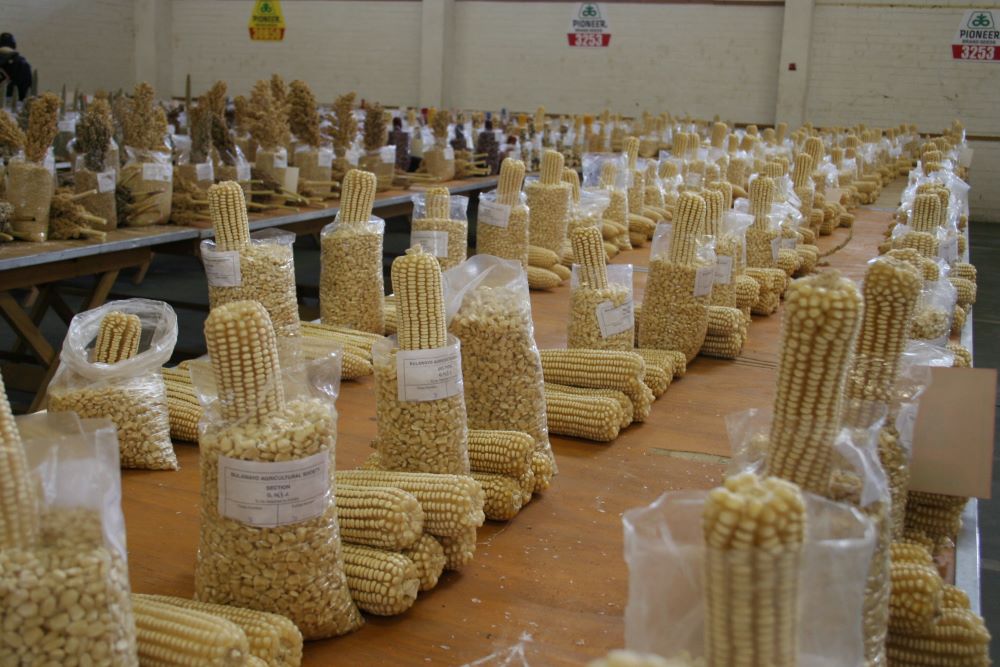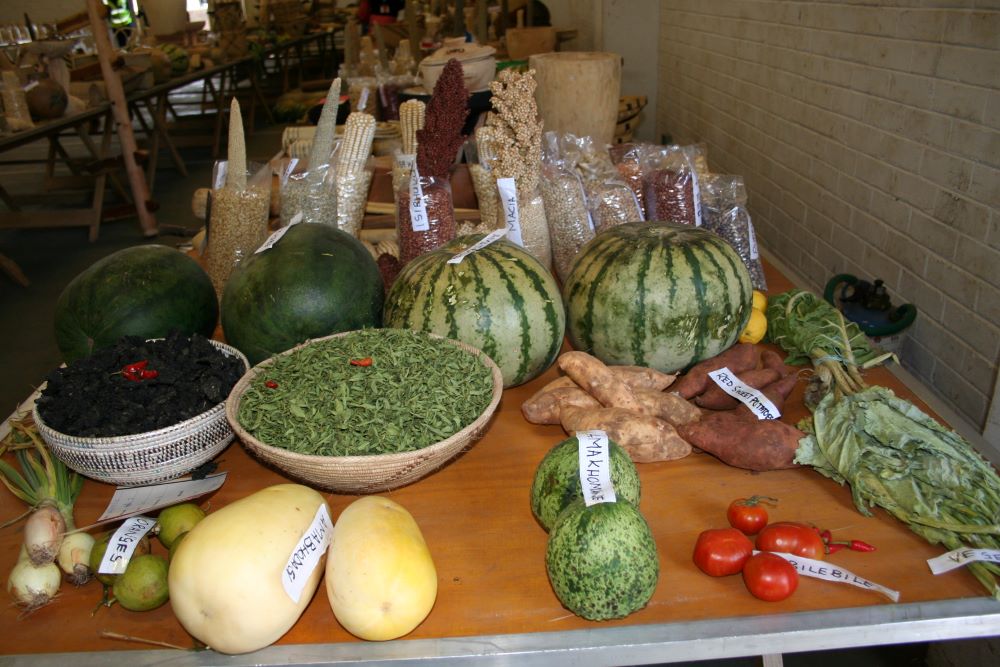By Busani Bafana
Agriculture may be an economic lifeline for several economies in Africa but it is not delivering on expected returns because of poor accountability on investments made to boost its productivity, researchers say.
Contributing about 30 percent to Africa’s GDP, agriculture is a low hanging fruit for Africa’s economic growth through trade, raw materials, income and jobs.

Despite its central role, agriculture productivity remains generally low across the African continent compared to other regions of the world. There are many reasons for this; poor investment, mismanagement, under-resourced farmers, poor policy implementation and a lack of transparency in the agriculture sector.
Accelerating agriculture transformation
In 2003, African leaders adopted the Comprehensive Africa Agriculture Development Programme (CAADP), a policy framework for agricultural transformation, wealth creation, food and nutrition security and economic growth and prosperity in Africa.
To realise agriculture transformation, Africa needs to invest up to $40 billion a year over ten years to 2025, according to the African Development Bank (AfDB). Such investment, the bank says, will create new markets worth at least $85 billion a year in added revenue by 2025.
At its creation, CAADP had a vision and goals for accelerating Africa’s agricultural growth by 2025 through seven commitments to enhance investment finance in agriculture, ending hunger and halving poverty through inclusive agricultural growth and transformation. Furthermore, there was a commitment to boost intra-Africa trade in agricultural commodities and services, enhancing resilience of livelihoods and production systems to climate variability and mutual accountability to actions and results.
Keen to foster accountability to action and results in agriculture development, African Heads of State, pledged to conduct a continent-wide biennial review process to monitor and report progress on meeting the seven CAADP commitments by 2025.
Keeping score on CAADP commitments
As part of the Malabo Declaration, the African Union Commission was instructed to develop monitoring and reporting systems to produce the biennial review report. The report measures a country’s progress towards achieving the Malabo Declaration and CAADP targets. The inaugural biennial report for 2015-2016 was conducted in 2017 and presented at the African Union summit in 2018.

The inaugural report indicated that 20 of the 47 member states that reported were on target but eight failed to submit reports. This situation called for urgent interventions to ensure that the continent’s agricultural agenda is brought back on course.
In response to this scenario, the Alliance for Green Revolution in Africa (AGRA) commissioned the Food Agricultural and Natural Resources Policy Analysis Network (FANRPAN) to implement the “Cultivating African Champions for the Biennial Review Report, African Agricultural Transformation Scorecard Heads of States dashboard” project. The project assisted African Union member states to address gaps identified in the inaugural biennial review report.
“For Africa, agriculture is a priority target sector for achieving the SDGs which is in line with what the CAADP framework seeks to achieve,” said Dr. Njongenhle Nyoni, Project Officer at FANRPAN.
FANRPAN has familiarised national government ministries with the CAADP biennial review process, helping them understand its results and gaps identified in their performance by developing and validating intervention action plans.
The 2019 biennial review report, Africa Agriculture Transformation Scorecard (AATS), launched in February 2020 at the 33rd Africa Union Summit in Ethiopia, showed that many countries are on course to achieving Malabo targets but the rate of progress has slowed, Nyoni said.
Of the 49 reporting AU member states, 36 improved their overall agricultural transformation scores compared to 2017. The 2019 report also set a higher benchmark score for gauging the progress at 6.66 out of 10 compared to 3.94 in 2017. Only four out of 49 countries surpassed the 2019 benchmark of 6.66 out of 10. Rwanda tops the list with the highest score of 7.24, Morocco, Mali and Ghana, the only country which had been off track in the first biennial review report.
“There is improvement generally in most of the countries, however there is much more that needs to be done for countries to reach the 2025 targets, said Nyoni noting the need for more investment and resources in the biennial process to raise accountability in tracking progress on meeting the Malabo Declaration goals.
FANRPAN is also a partner in the Global Challenges Research Fund – Agricultural and Food Systems Resilience: Increasing Capacity & Advising Policy (GCRF-AFRICAP) programme which is assisting Malawi, South Africa, Tanzania and Zambia in their efforts to meet their commitments to the Malabo Declaration and the Sustainable Development Goals through the creation of climate-smart agri-food systems.
AFRICAP seeks to contribute to the Malabo Declaration and CAADP principles and values. In particular, to increase the capacity of African researchers to generate, analyse and use data, information, knowledge and innovations in enhancing resilience of livelihoods and production systems to climate variability.
To ensure success, the project is promoting the effective use of interdisciplinary science evidence in policymaking in the targeted countries. In addition, the project is implementing climate-smart agriculture development pathways and building capacity by creating successful international and interdisciplinary research partnerships.
The desired changes will be achieved by collating evidence on the effectiveness of current agri-food systems in the four countries, which in turn is being used to inform the modelling of pathways to achieving future economic growth and food and nutrition security.

This evidence and modelling work is being shared with key stakeholders to feed into their policy- and decision-making processes.
The Malabo Declaration is part of AFRICAP’s key programme goals. AFRICAP is exploring opportunities to support with Zambia’s Malabo biennial review.
Mutual accountability will enable governments in Africa to monitor the progress on delivering the commitments of the Malabo Declaration in achieving agriculture transformation and economic growth.
However, several challenges including weak agriculture monitoring and evaluation systems, poor data quality and narrow stakeholder platforms for review and dialogue exist, according to the African Agriculture Status Report 2018. The report underlined the critical need for in-depth assessment of national statistical systems to strengthen institutional and human capacity of institutions involved in data collection and analysis for the Biennial Review report.
Agriculture data dearth
Data availability and quality remain a problem in Africa, Nyoni said, noting that poor data systems and capacities across the continent call for an urgent need to integrate the biennial review data collection process into existing national data systems.
Sibusiso Nhlengethwa, a researcher at the International Water Management Institute (IWMI) which hosts the Regional Strategic Analysis and Knowledge Support System (ReSAKSS) node in Southern Africa said the accurate data is important for Africa’s agriculture development. However, the big data revolution has not yet hit agriculture in Africa, Nhlengethwa said in presentation during the FANRPAN Regional multi-stakeholder virtual dialogue.
“Agricultural data is key for sustainability, the key is getting data to benefit all,” said Nhlengethwa.
ReSAKSS tracks progress on over 47 core indicators to monitor performance towards achievement of CAADP goals and targets which include the 6% annual agriculture growth and 10% budget allocation to agriculture.
The Biennial Review evaluates progress on implementing the CAADP/Malabo Declaration of each African Union Commission Members State.
